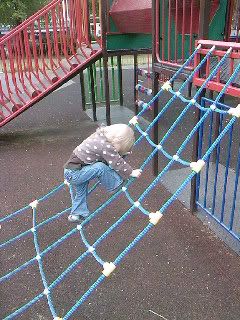Post
by floppit » Tue Nov 29, 2011 9:48 am
I suppose it depends on what people believe help, something given, should cover and that in turns depends on what society an individual wishes to live in.
For me, I want to live in a society where those helped are done so in a way that maintains their self respect and encourages their desire/self belief to use the help in ways that improve their long term chances of regaining better independence. I don't want to live in a society where help is so meagre as to degrade an individual, lessen them and result in a more permanent dependency, I wouldn't vote for that, I would articulate my objection to it and argue it to be short sighted, foolish.
I accept that in every system there will, as a certainty, exist people that abuse that system but in designing any system a balance needs to be struck between preventing abuse and still having a functional system. If ALL the attention goes on preventing the abuses then the likelihood is arriving at a system, which while more robust in terms of defensiveness, has forgone it's ability to support any individual out of dependency towards increasing their own means to improve their own situation.
How I view pets owned by those receiving financial assistance is governed by the above. Pets are not a 'dead loss', there's plentiful research in regard to the role they can play in promoting responsibility, improving interpersonal relationships between people, improving mental and physical health and increasing quality of life. Equally there's a section of pet owners who seem to manage to fail impressively at gaining any of the above, abuse the pets, the state and often the people around them - I would argue this group would be no less of a pain in the ass petless! But for those that DO manage to gain from the benefits of pet ownership it's actually very cost effective. A hardy cross breed costs little in vet bills/is cheap to insure and frankly there's plenty of non branded, nutritional cheap pet food out there (working dog feed by the sack in the uk isn't even charged VAT!). In return the dog (yeah - I know there's other pets out there but I haven't a fecking clue re half of them!) can actively provide daily focus for someone struggling with mental health issues, constant companionship way beyond what the state could afford to provide, teach children in families about caring, provide a light but constant fitness regime at no cost to the state (in the uk savings through NHS should be considered in regard to health) and offer a focus/daily routine, a core need in regard to returning to work.
In shorts the mugheads that manage to reap none of the above will be no less mugheads without a pet and yeah, it'd be better for the pet if they didn't have one! No system will eradicate their existence or their abuse of help without creating a non functioning system for those who are able and willing to improve their own lot. I would argue it is more pragmatic and sensible to create systems that encourage those who will step up to the plate, and for them pet ownership can work, be cost effective and beneficial to the individual/society.
I have no idea exactly how much my dog costs because it's so damn little! I buy a sack of good dry feed, I give him the healthy household scraps as a top up, he's 14 a fantastic shape and while vet costs have increased with age, I have no intention of dragging him through the 'zombie on a string' old age so they will be capped. He costs £11 per 60 days + (only since old age hit) £100 - £200 per year vets fees. For the first 13 years of life, only the feed costs and 1 vet visit per year max; about 20p per day. How's that for cost effective gains?
"Whatever it is, it spits and it goes 'WAAARGHHHHHHHH' - that's probably enough to suggest you shouldn't argue with it." Mousy.



